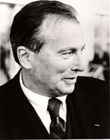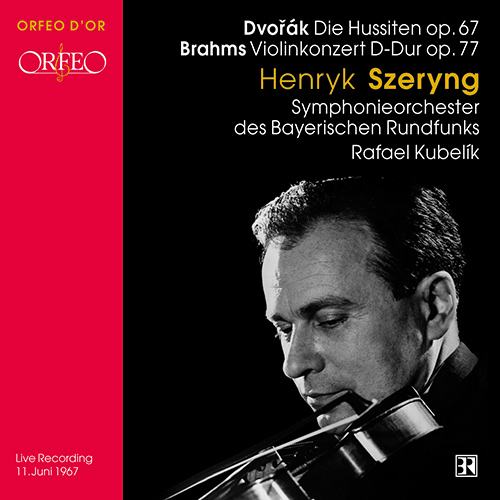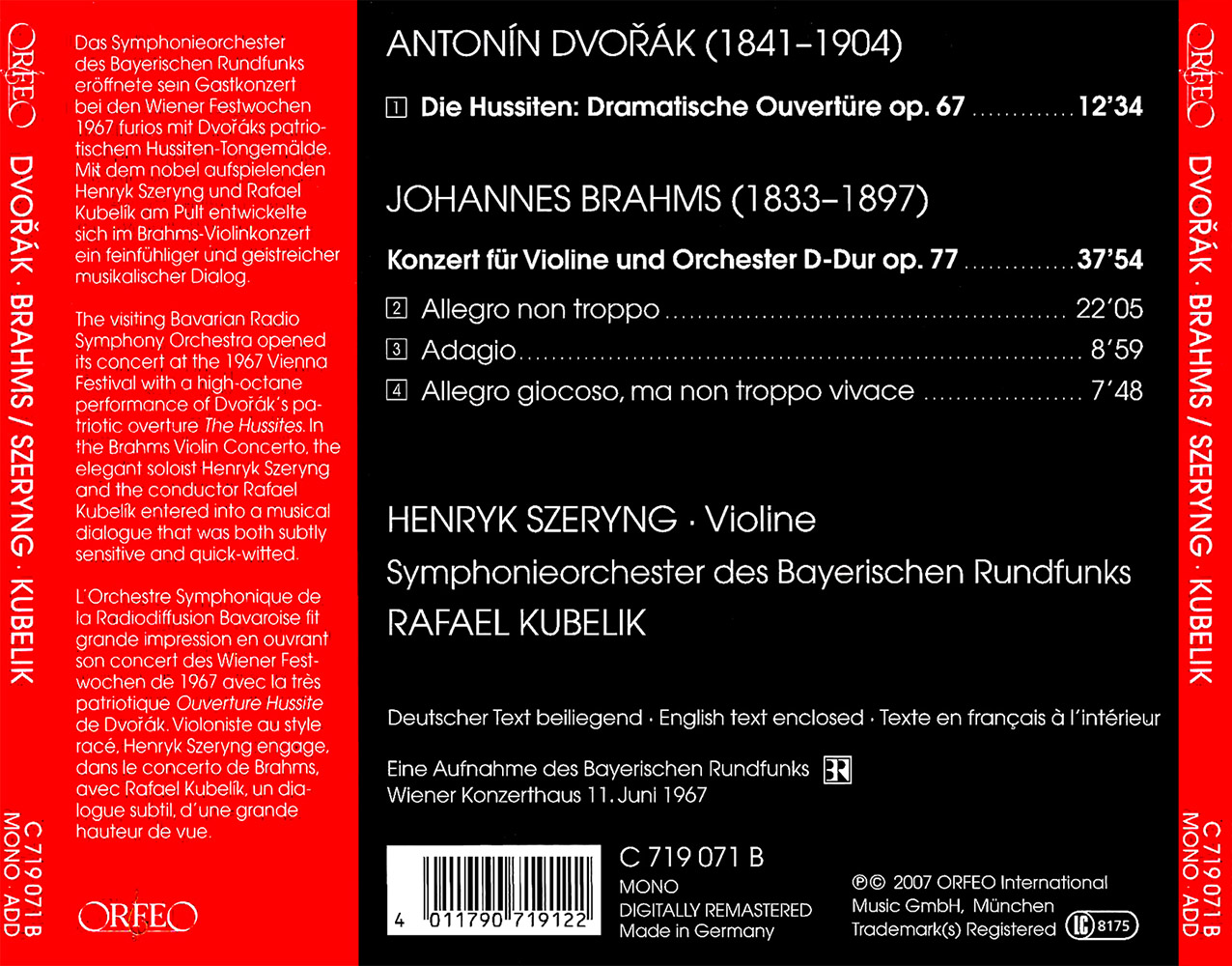Henryk Szeryng: Dvorak; Brahms
At the end of the concert enshrined in this latest release on the Orfeo label, the Bavarian Radio Symphony Orchestra is as loudly and warmly acclaimed as its conductor, Rafael Kubelík. The programme opens with Dvorák’s dramatic overture The Hussites, which illustrates the impulsive, sensitive and, above all, homogeneous playing of the orchestra, each of whose sections is attuned to the other. 
Henryk Szeryng
Foto: ORFEO InternationalThe natural flow of the music is never disturbed or impeded by any misconceived or exaggerated emotionalism. Rather, the performance is a triumph of the work’s underlying dance rhythms and the undiminished exuberance of a composer then at the very pinnacle of his powers. This dynamic opening is followed by a performance of the Violin Concerto by Johannes Brahms, the composer who played such an important role in discovering and promoting the music of Dvorák as one of the leading voices in Czech nationalism. The soloist is Henryk Szeryng, whose perfect command of his instrument and unpretentiously noble performing style make a vital contribution to what is undoubtedly a great performance. Virtuosity is never in short supply, and yet all concerned are more concerned with achieving a sense of transcendent beauty than with mere showmanship. The sometimes difficult balancing act involved in reconciling the need to provide support for the soloist with the ability to spin out the cantilenas in a symphonic dialogue between soloist and orchestra is superbly mastered by Kubelík and his orchestra, whose playing is both pointed and gossamer-light in its textures. In keeping with its very precise performance marking, „Allegro giocoso ma non troppo vivace“, the final movement, too, benefits from the interplay between Szerying and Kubelík, each spurring the other on and yet also deferring to the other in a partnership that leaves nothing to be desired in terms of its elasticity and presence of mind. Like every great performance, the present live recording is distinguished by the fact that even after forty years it has lost none of its freshness and validity.

















